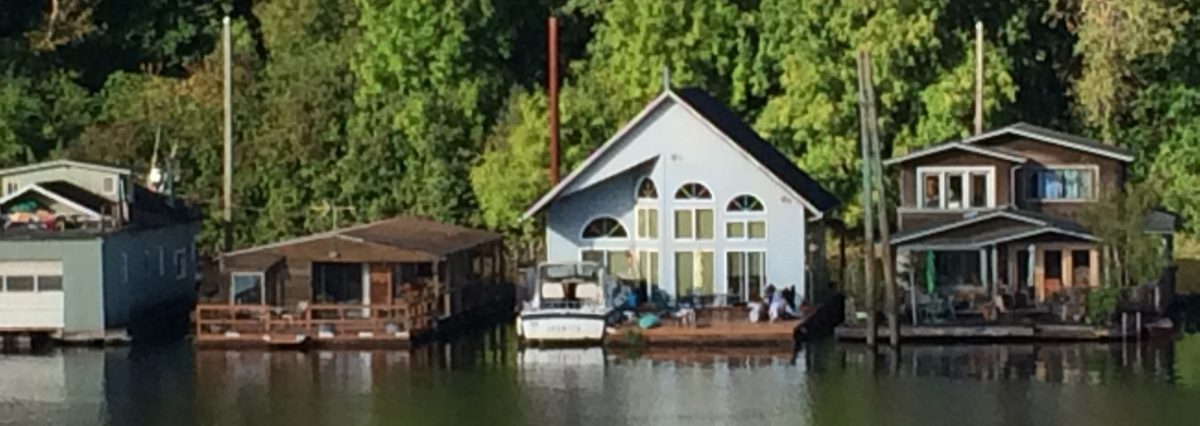Please consider attending this important meeting about laws that affect you if you are an Oregon Floating Home Owner that owns your home but rents your slip in Portland, Gresham, Scappoose, St. Helens and beyond.
This will be a Floating Home Owner Only meeting. No landlords or park tenants. This meeting will focus on issues that Floating Home Owners are facing and what we can do to draft legislation to protect ourselves.
Background – why we need your participation at this meeting:
Here is a brief update on what happened at the December 10th MH Coalition Meeting. I was out of town for the January meeting and no marina issues were discussed.
At the December 10th MH Coalition meeting, a marina issue was on the agenda (see the previous post) – HABITABILITY.
Regarding the origin of habitability – this is an issue that the Floating Home Owner Group that met in St. Johns discussed but the MH Coalition didn’t have time for in the 2019 legislative session.
Habitability – there are already Oregon Statute laws requiring a landlord maintain common area in good working order. The laws specifically call out items such as providing water and fuel, keeping common grounds maintained for normal use, solid land for manufactured houses to be located on, etc. Even though they apply to us, they are written with a land-based-house focus. The statutes don’t necessarily call out ramps, docks, the life or death implications of snow/ice/moss removal, or floating home spaces protected from wakes. And while it does require “safety from the hazards of fire” it does not call out the need for marina fire systems, alarms and water pumps. No where is a landlord required to furnish swim ladders used to help prevent drownings. However, I routinely hear from floating home owner tenants about habitability – docks in disrepair, missing or broken deck boards, loose nails, and lack of any useable fire equipment (which also causes floating home insurance companies to pass along that risk in the form of increased premiums at moorages without enough fire fighting tools). We all know that common area maintenance or lack thereof can cause death and significant loss of property due to docks being in disrepair or lack of fire fighting equipment.
Seems like some reasonable requests, right? We just don’t want it to be so easy to die.
Marina landlords reacted to this request by stating that they believed all of our concerns were already addressed in codes and current legislation. They moved that floating home owner tenants meet with marina landlords outside of the MH Coalition to understand all the wonderful things they already do to keep residents safe. Marina Landlords told the MH Coalition that once they inform tenants of how much they do for us already, that there would likely not be any reason to waste the full MH Coalition’s time with issues that are already addressed through building and fire codes for marinas.
Unfortunately, most of the Landlords’ claim is false. I have studied the marina fire and county codes for my marina and the problem is that most of those codes were written to protect boats, not to protect residents’ lives and housing. These codes rarely address the life-safety issues that floating home owners contend with every day. The rules for protecting property and lives are different for apartments but marina codes largely assume only boats need protection and have nearly left out the concept that people LIVE in marinas, too. These codes address only property and make the incorrect assumption that marina owners have the most property at risk in a marina. Minimal codes address floating home marinas as compared to apartment or other housing codes.
Floating Home Owners and Landlords will meet in April (date TBD) to discuss what each side wants and thinks is reasonable.
This March 12th meeting will help floating home owners prepare for the April meeting.
You are invited also to the April meeting so that you can make your issues heard and see what your marina landlords have to say about them.
High Rental Increases
Additionally, at least one marina landlord has raised rents to the maximum allowed by law (~10%)…we need to determine what we can do together to keep that from happening to floating home owners every year.
Meeting Objectives:
- Brief overview the new laws which took effect on January 1, 2020
- Brief overview of the issues we intend to consider for 2021
- Find out what additional issues you are experiencing
- Discuss strategies to prevent 10% rental increases from becoming an annual event at your moorage
We need your help:
- Talk to your neighbors about attending the March 12th meeting
- Forward this post to other floating home owners who own their homes but rent their slips
- Come to the March 12th Floating Home Owner meeting to find out more about the laws and rent increases
- Be on the lookout for more information about the April Floating Home Marina Landlord-Tenant meetings (not yet scheduled)
- To join our mailing list for up-to-date info and commentary about your rights and this process, to participate in spreading the word or posting flyers at your marina, email us at rights@floatinghomeowners.com and let us know your name and in which rental moorage you live.
WHAT: Floating Home Owners Meeting
WHO: Floating home owners who own their homes and rent their slips (Portland, Gresham, Scappoose, St. Helens, and beyond are welcome)
WHEN: Thursday, March 12, 2020 6:00pm – 9:00pm
WHERE: The Wayfinding Academy 8010 N. Charleston Ave Portland (St. Johns), OR 97203
Thanks, everyone, for your effort and support!
-FHO
